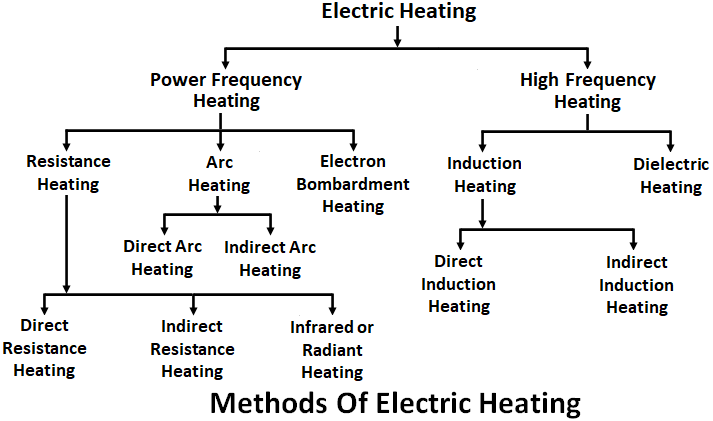The process in which heat is produced by using electrical energy is known as electric heating. With the advent of electricity, there are various electric heating methods introduced which are much simpler and more efficient than other systems of heating (i.e., coal, gas, or oil).
All heating requirements for domestic purposes such as cooking, room heating, water heating, ironing of clothes, kettles, hair drying, ovens, bread toasting, and for industrial purposes such as welding, drying, melting, soldering, brazing, and hardening can be done easily by electric heating. In this article let us see the advantages and disadvantages of electric heating.
Advantages of Electric Heating :
Economical :
The initial cost of an electric heating system is low compared to coal, gas, or oil heating systems. All electric heating systems do not require much-skilled labor which in turn reduces the labor cost and maintenance cost. Since there are no such internal moving parts in electric boilers, wear and tear in the equipment is greatly reduced, thereby increasing the life span of the equipment and reducing scheduled service.
Cleanliness :
In a coal heating method, there is a formation of ash and dust, whereas in electric heating no such products are released. Thus electric heating is the cleanest method of heating and thus costs associated with the cleaning are rendered to a minimum.
Pollution Free :
In an electric heating system, there is no combustion process involved and no such harmful or flue gases are produced. Thus this method of heating is completely pollution-free which keeps the atmosphere clean and it also eliminated the requirements of exit space for the gases.
Easy Control :
By employing manual or automatic devices using timers, simple, accurate, and reliable temperatures can be obtained in the furnace. This future of controlling and regulating the heat to obtain desired temperatures cannot be achieved easily in other heating systems.
High Efficiency :
It has been practically found that in other heating systems only 40 to 60% of the heat produced is utilized. But in electric heating, about 75 to 100% of the heat produced can be successfully utilized by bringing the heat source directly to the point where heat is required. Hence the overall efficiency of an electric heating system is very high.
Automatic protection :
Automatic protection against overcurrents or overheating can be provided through suitable switchgear in electric heating systems.
Better working conditions :
An electric heating system produces no irritating noise and also the radiation losses are low. Thus working with electric furnaces is convenient and cool.
Safety :
In other types of boilers, the fuel used to generate heat has a risk of giving off carbon monoxide gases that cause dizziness, headaches, and shortness of breath to the person. But electric boilers do not burn any fuel internally to generate heat, thus none of the associated people are at risk from carbon monoxide poisoning or explosions. Therefore, an electric heating system is quite safe.
Special Heating Requirement :
By using electric heating, desired heating requirements such as uniform heating of the material, heating of non-conducting material such as wood and porcelain which is possible only by electric heating, heating a particular portion of the material, and also high temperatures can be obtained.
Less Floor Area :
The floor area required for electric heating is less due to the compactness of the electric furnace.

